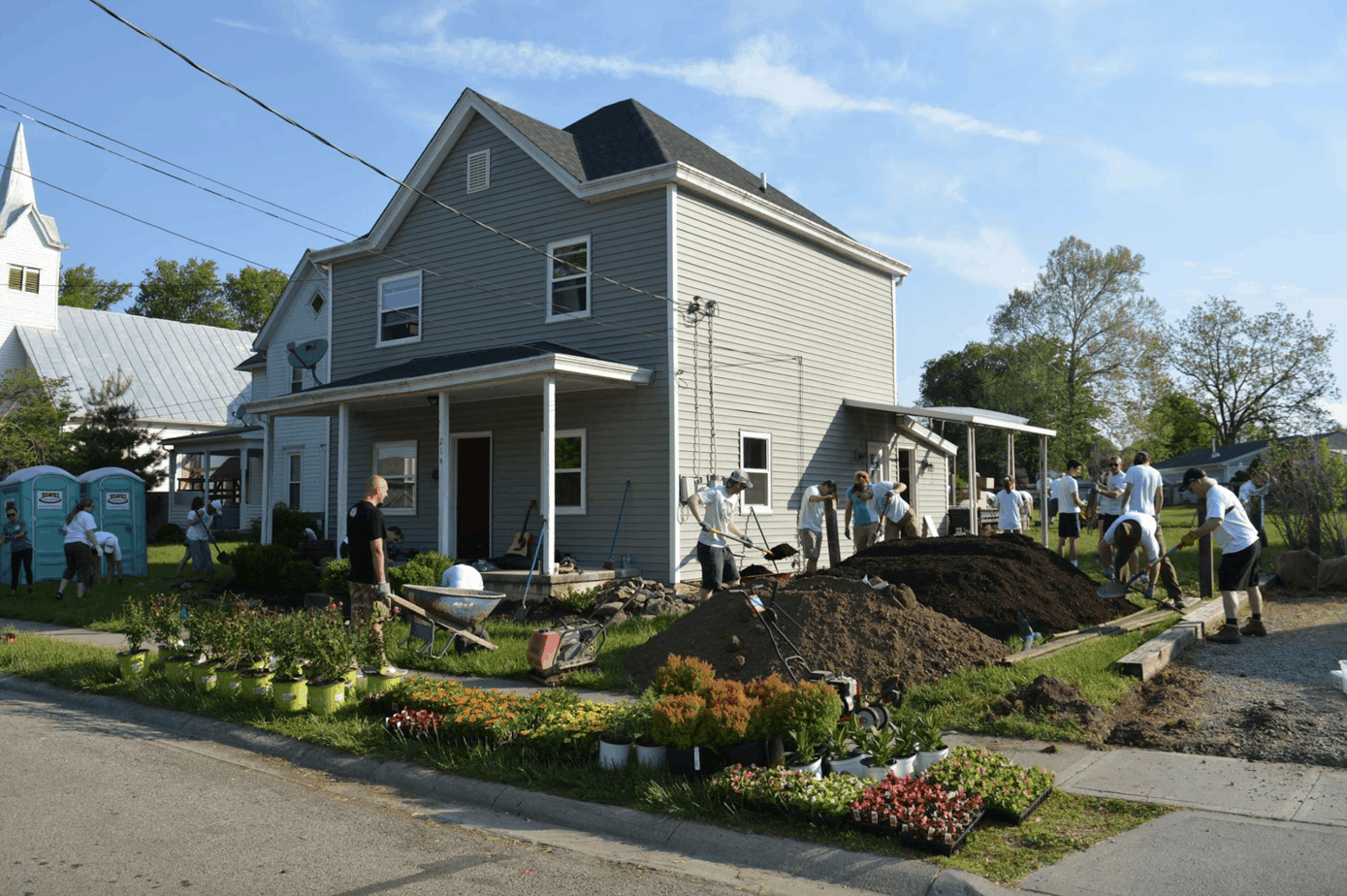This holiday is for giving thanks. We look at our families, our health, our meals, our homes, even our material possessions, and we raise our voices in gratitude. It is a moment to appreciate the wonder around us, and realize that we are blessed indeed. The wonder that I am struck by this season is the concept of generosity. Do you know what a crazy idea this is? We’ve all worked hard for our money; how hard it is to consider giving it to someone else! We have so little free time; why spend our precious leisure time working for the benefit of others — much less people we don’t even know? And does it even have an impact?
This season I am thankful for those who give.
A Few Came Together to Combat an Epidemic.
It was recently reported that Ohio had more heroin-related deaths last year than any other state in America. The opioid epidemic is now the leading cause of death for Americans under the age of 50. In a typical week, the greater Cincinnati area will have over 180 overdoses, 18 deaths, and 15 babies born with heroin-related problems. The losses are staggering, and almost every person I know has a friend or family member who has died from opioid overdose.
A local group of individuals decided to act. None are professional fundraisers, or experts in health care, addiction recovery or social work. These are guys who work at Proctor & Gamble, gals who work at G.E. Some are small business owners, others are community leaders and clergy. But collectively they recognized a devastating attack on our community. They wanted to act locally and quickly.
What Could “Regular Folks” Do?
They met weekly at 7 a.m., as that was the only time that would fit into their busy schedules; they got up an hour early to come together to find a solution. The heroin epidemic is such a complex and pervasive problem — how could “regular folks” do anything that could actually make an impact? They determined that a small step that might touch some lives would be a 24/7 care coordinator: a heroin hope hotline. An addict or his or her family could call for free help to navigate the labyrinth of treatment options — one compassionate and knowledgeable voice for those who are lost. Maybe that one care coordinator could lead a few souls to treatment, and save some lives and families. They started raising money to fund a care coordinator.
The Gathering of Regular Folks Became “OneCity Against Heroin.”
Heroin and opioid abuse isn’t a glamorous or sexy cause; it’s gritty and ugly. Sometimes the addicts are not particularly sympathetic characters. Especially four years ago, the heroin epidemic wasn’t an issue being championed by many mainstream philanthropies or businesses. This was not going to be an easy task.
But this busy group of business and community leaders rolled up theirs sleeves and jumped in. They made phone calls and wrote letters. They called in favors. They asked colleagues to sponsor fundraising events. They leaned on their friends for help. They met with local government officials to work hand-in-hand with public agencies. They opened their own wallets. They shined a light on an ugly issue, one that was being swept under the rug. They attacked it with organization, and energy, and love and compassion.
Fast forward three years. Those 7 a.m. meetings resulted in over $1 million raised. OneCity Against Heroin now funds three full-time care coordinators who have guided over 1,000 people into treatment and will serve more than 700 souls in 2018 alone. The care coordinators are a lifeline of hope for those suffering, and have saved untold lives. In addition, OneCity Against Heroin purchased, rehabbed and opened the first men’s recovery home in Warren County, Ohio, where men can adjust to post-treatment life in a supportive and compassionate environment. That home opened this fall.

Individuals Giving Their Treasure, Building OneCity
Let me tell you about Tom and Deb. Tom and Deb got involved with OneCity this summer. Three months later Tom’s business signed on to be a $15,000 sponsor of the OneCity fundraising gala. And Tom and Deb also personally sponsored a table. And Tom and Deb sponsored a third table for their church. And Tom and Deb sponsored a fourth table in the name of a prison ministry they support. Not only did they give their money for these tables, they filled all four tables. They brought 40 people to the gala, introduced them to the cause, and asked them to give.
Or let’s look at Lou. Lou is one of those guys who knows how to do everything around the house. When OneCity purchased an old house that needed some work to turn it into a recovery home, Lou spent every weekend for weeks and weeks at that house, renovating and building, to get it ready for those in need. He put in flooring, electrical, appliances, plumbing. He literally poured his blood, sweat (and probably tears) into that house, to save people he doesn’t even know.
This is crazy! Right? It makes no sense. A small number of already-stretched-to-the-limit people took on an epidemic, and gave precious money and precious time. And while OneCity Against Heroin is heroic, and remarkable, and somewhat miraculous, it is not unique. I know that there are other people, in other communities, quietly giving of themselves, to help people they don’t even know.
So as I look at this holiday of giving thanks, I am truly grateful for giving — for generous, unselfish, sometimes sacrificial giving. What an amazing world we live in.
For more information about OneCity Against Heroin, visit OneCity Against Heroin.
For most about Thanksgiving, please see Keeping them Stuffed through the Thanksgiving Week, and Thanksgiving Traditions.



